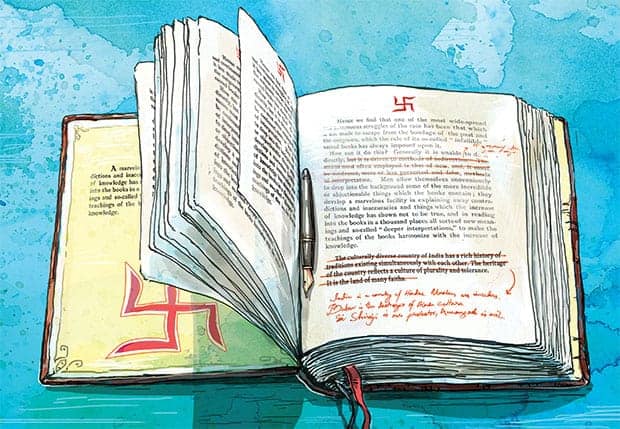Directed By: Alankrita Shrivastava
Cast: Ratna Patak Shah, Konkona Sensharma, Aahana Kumra, Plabita Borthakur
After a long battle for the release of this ‘lady-oriented’ film as proclaimed by our beloved Central Board for Film Certification (CBFC), Lipstick under My Burkha released on Friday with an ‘A’ certificate, a few bleeps here, and a few cuts there.
But right off the bat, I will say that the battle and the wait, both, were worth it. Set in Bhopal, it chronicles 4 middle class women who all have different wants – the want to start a business, to work outside of home, to sing and emulate the clothing styles of her American pop idols, to attend swimming classes, and so on. Then there are the reasons why the movie was termed “women’s fantasy above life”, as in the things that cannot be realistically achieved – the desire for sexual and other kinds of freedoms and liberties of their own bodies and minds. This may come in the form of wearing jeans, reading erotic novels, or going to a party and smoking and drinking; which were not only shown to be the ways to freedom, but personal choices that the individuals made.
The larger and previously untouched point in the realm of Hindi movies is made here; that women also have desires (even sexual (!)) and that in our society, which is only inclusive but not limited to, a ‘certain community’, these desires are brutally supressed, mocked, or not even acknowledged. Each woman’s story is unique but the common thread exists in the form of real life societal blockages that stop them from achieving any fantasy they dare to dream about.
This was a movie that did not force women to start a revolution and overthrow the patriarchy. Instead, it left an ambiguous ending. Nothing in the ‘audio pornography’ or the scenes is something that most adults with internet connections have not seen or heard. Then what was the controversy for? I believe the answer lies in what one of the characters asks in the film, ‘Hamari azaadi se aap itna darte kyu hain?’ (Why are you terrified of our freedom?). I guess that’s also why some men in the movie hall laughed at the dramatic, definitely not comedic, scenes and made innuendos loudly – fear is often repressed with laughter and the female perspective being shown on the screen had to be repressed, made powerless with louder laughs to underscore its importance. This experience itself was a good case for why such films need to be made.
The portrayal of the everyday lives of these women shifted with ease from poignant scenes that are accompanied with tears and frustrations at denial of freedoms; to comic scenes and those of enjoyment, with a lovely background score and songs that adds a nice touch to these moments. Konkona Sensharma and Ratna Pathak Shah sink completely into their characters, expectedly, and newcomers Aahana Kumra and Plabita Borthakur match them with their acting prowess. The women shine bright with their complex characters that battle inner turmoil and the fight against the reality of their situations. Revealing greater details about the plot will result in spoilers that will dim the experience of watching the film first hand, which I believe should be done as soon as you can. Do it purely for the song Le Li Jaan, which basically serves as the spirit of the movie with its peppy music and the following sombre lyrics, ‘Le li Le li jaan jaan jaan jaan, bina pooche haye haye’ (‘they took our lives without asking us).
Feature Image Credits: timesofindia.indiatimes.com
Rishika Singh



 olute, Jehovah, Brahma, the Creator, and the Divine Architect being those commonly used in Aetherius Society teachings. The use of the term ‘God’ specifically refers to the Abrahamic God or Yahweh or Allah followed by the three major monotheistic faiths: Judaism, Christianity, and Islam. But, ‘god’ generally refers a deity in a pantheon or to demigods who are powerful but not supreme. For example, Hermes the god of the crossroads from Greece, Surya, the sun god in Hinduism, or Tlaloc the rain god from the Aztec pantheon are demi-gods.
olute, Jehovah, Brahma, the Creator, and the Divine Architect being those commonly used in Aetherius Society teachings. The use of the term ‘God’ specifically refers to the Abrahamic God or Yahweh or Allah followed by the three major monotheistic faiths: Judaism, Christianity, and Islam. But, ‘god’ generally refers a deity in a pantheon or to demigods who are powerful but not supreme. For example, Hermes the god of the crossroads from Greece, Surya, the sun god in Hinduism, or Tlaloc the rain god from the Aztec pantheon are demi-gods.








